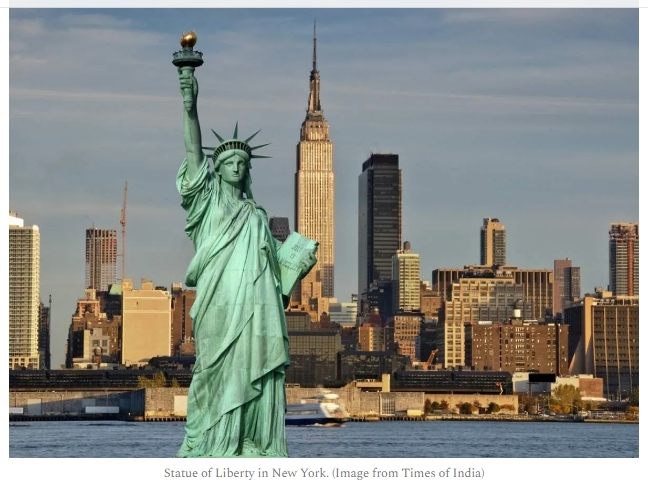By Geoffrey Clarfield
To speak of the future of Canada without mentioning the future of the United States would be to ignore the elephant in the room, so I should say a few words about the elephant at our southern border.
Since the end of the WWII, the United States has been the leader of the Western World. Britain had emerged from the war victorious, but enfeebled. Its empire would soon dissolve. Europe lay in tatters. This left the United States to emerge from the war — after its belated entry— to find itself, unexpectedly, the foremost industrial, technological, military and political power in the world.

The United States is a power whose greatness was thrust upon it. America’s isolationist strain had made it reluctant to enter WWII until the Japanese attacked the American fleet at Pearl Harbor. It is still difficult for a baby boomer like me to understand how the United States could have stood idle for so long, while the Japanese conquered Manchuria, and the Nazis turned Europe into Hitler’s fortress.
But the truth is that American isolationism continues to influence its foreign policy. Thrust upon the world stage after WWII, the United States threw most of its force and creativity into fighting and winning the Cold War. In the heady days after the fall of the Berlin Wall it was thought that we had reached the end of history, that the entire world would embrace democracy, that Russia would become a true democracy; and that the economic development of China would eventually bring on a democracy there as well, driven by the demands of a rising middle class. America would be the first among equals, and peace and commerce would reign. Globalism, it was thought, would become inevitable.
Then came 9/11. The American elites were incapable of comprehending how this could have happened. They had been attacked by a group of very wealthy young Jihadis, mostly from America’s Arab “ally,” Saudi Arabia. They had commandeered jet airliners, and flew them into the twin towers, and into the heart of the Pentagon. Instead of labelling this a “Barbarian Invasion,” American elites called it everything that it was not. It was, quite simply, the latest Jihad against the West.
In 2010 I happened to be on the streets of Manhattan, beginning a three-year contract with a music archive there. Asking myself “Whither the USA,” I found one answer to my question in a small bookstore where a book title, Are We Rome? jumped out at me. Its author, independent writer and editor, Cullen Murphy, describes the social and institutional structure of the later Roman Empire before the fall of its empire in the West and compares it with contemporary America. The parallels are persuasive, and the outcome pessimistic.
Murphy points out that one of the reasons Rome lost its Western Empire was its inability to keep out the “Barbarian hordes” who were unable and unwilling to adopt the virtues of ancient Rome, what the ancient Romans themselves called “Romanitas.” This book was written long before President Biden opened America’s border with Mexico to millions of illegal immigrants, most of whom are at once envious of and hostile to the values that drive American society. If this trend continues, children born to American citizens will be overwhelmed by illegal immigrants who are all expected to vote Democratic, thus ushering in a kind of populist Praetorian state.
Will these new and mostly illegal immigrants eventually adopt the values in the US Constitution? I am not sure. That would be a pleasant surprise. Who knows?
First published at Woke Watch
- Like
- Digg
- Tumblr
- VKontakte
- Buffer
- Love This
- Odnoklassniki
- Meneame
- Blogger
- Amazon
- Yahoo Mail
- Gmail
- AOL
- Newsvine
- HackerNews
- Evernote
- MySpace
- Mail.ru
- Viadeo
- Line
- Comments
- SMS
- Viber
- Telegram
- Subscribe
- Skype
- Facebook Messenger
- Kakao
- LiveJournal
- Yammer
- Edgar
- Fintel
- Mix
- Instapaper
- Copy Link







One Response
It’s noted (pg. 85, “The Sovereign Individual”) “The collapse of Roman authority largely freed farmers in the countryside from taxes, which had sucked away “between one quarter to one-third of the gross product of the land, without counting the various exactions suffered by small and middling landowners.” The taxes were so onerous, sometimes enforced by execution, that desertion of property by owners was widespread. The barbarians mercifully allowed these taxes to lapse.”
This reminds me of a recent article about a business in LA that was going bankrupt, but that the owner could not afford to close – because of onerous regulation.